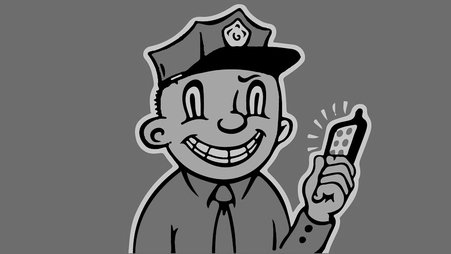It’s the digital security training team at Freedom of the Press Foundation (FPF), with security news that keeps you, your sources, and your devices safe. If someone shared this newsletter with you, please subscribe here.
Australian journalist detained, phone seized at US border
Last week, following a flight from Melbourne to Los Angeles, journalist Alistair Kitchen was detained and interrogated for 12 hours by U.S. Customs and Border Protection. Kitchen said, “The CBP explicitly said to me, the reason you have been detained is because of your writing on the Columbia student protests,” arguing he was targeted for politically motivated reasons. Kitchen previously lived in New York for six years and reported on the protests before returning to Australia in 2024. During the incident, Kitchen said he provided his phone’s passcode to CBP officials, which they then used to search the device. He was subsequently sent on a deportation flight back to Melbourne after questioning. The Guardian reports, “Kitchen said his phone and passport were handed to a Qantas flight attendant at the start of his deportation flight and he was unable to get them back until they landed in Melbourne.” Read more.
What you can do
- It’s disturbing to see that journalists are being harassed and questioned at a U.S. border in response to their reporting and public speech. Due to the CBP’s line of questioning about his online posts, Kitchen believed that “sensitive political posts” from his blog and social media posts were linked to his application for the Electronic System for Travel Authorization, which is used to determine whether someone will be permitted to take a short trip to the U.S. without a visa. For non-U.S. citizens, this means your public-facing web presence may be a consideration for your likelihood of being turned away from the border, as well as being detained or experiencing a search of your devices.
- CBP claims sweeping authority to search travelers’ devices when crossing the border. For any reason or no reason at all, they may conduct a “basic” search — essentially, visually looking through a device. But if they feel they have a reasonable suspicion or if they have a “national security concern,” they may conduct what they call an “advanced” search, which may include using forensic tools to copy your devices. You may be asked to unlock that device. U.S. citizens cannot be denied entry to the country for refusing to unlock their device or provide the passcode, but this may lead to delays, detainment, and further scrutiny. Non-U.S. citizens may be denied entry entirely. In the case of Alistair Kitchen, he provided his phone’s passcode and was denied entry. So you’ll have to make a difficult choice about what you will do if faced with these questions.
- Note that if you use a long, unique passcode (ideally alphanumeric) and you have a recent Android or iOS device with the most recent security updates installed, forensic search devices will have a tougher time analyzing your device. This is especially true if you power down your device before going through security.
- There are a lot more security considerations in play. We have more advice below!
Updates from our team
- We have been receiving more questions about travel safety at the U.S. border than ever before. We put together a guide, in collaboration with our friends at the Electronic Frontier Foundation, to help journalists navigate these challenging questions. It includes a checklist of things you can do to prepare devices for a trip through a U.S. border. Read it here.
- Are you a U.S.-based journalist covering the U.S./Mexico border? In partnership with Centre For Investigative Journalism in the U.K., our Source Protection Program has joined forces with ACOS Alliance and the Electronic Frontier Foundation to offer two opportunities for intensive safety and security training this August for journalists covering immigration, migration, and related issues on the border. This training program is designed to strengthen the safety skills of participants, and will cover digital, physical, psychosocial, and legal safety. Apply by July 3 to be considered for participation. We have two options for training dates and location: Aug. 15 in Albuquerque, New Mexico (one full day), and Aug. 18-19 in El Paso, Texas (two full days). The training is for U.S.-based journalists only. Space will be allocated according to need, training is free to participants, and limited travel grants may be available. Space is limited, so don’t wait! Apply here.
Our team is always ready to assist journalists with digital security concerns. Reach out here, and stay safe and secure out there.
Best,
Martin
–
Martin Shelton
Deputy Director of Digital Security
Freedom of the Press Foundation





